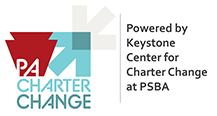The Public Cost of Charter Schools
- The burden of paying charter and cyber charter school tuition falls entirely on school districts and local taxpayers.
- The charter school funding formula has not been changed since it was created 25 years ago. It’s time to update the law.
- Charter school tuition payments are based on the school district’s expenses and not on the actual cost of educating students at a charter school, resulting in overpayment.
- The spiraling costs of charter schools on school district budgets continues to grow. Eight cents of every dollar school districts spent in 2020-21 went to paying charter school tuition (cyber and brick-and-mortar).
- In 2020-21, charter school tuition payments were more than $2.6 billion. $1 billion of that total was tuition to cyber charter schools.
- $2.6 billion of taxpayer money spent on charter school tuition could pay the average salary for 37,100 PA public school teachers.
- School districts are overpaying charter schools for special education. In the 2020-21 school year, school districts paid charter schools over $185 million more than the charter schools reported spending on special education costs.
Academic Performance
- Measures of academic proficiency of students enrolled at cyber schools are significantly lower than traditional public schools.
- A national study of Pennsylvania’s charter school performance found that students enrolled in cyber schools post significantly weaker academic growth than the average student in a traditional public school.
- On average, charter school proficiency on state testing is more than 20% lower than traditional school districts.
- Each year, cyber charter students lose the equivalent of 106 days of learning in reading and about 118 days of learning in math compared to traditional public school students.
Graduation
- Graduation rates of cyber charters are consistently and substantially below school districts. In fact, 4-year graduation rates at cyber charter schools are more than 27% lower than school districts.
- The average school district has about 88% of its students graduate in 4 years, while the average cyber charter school has only about 60% of its students graduate in 4 years.
